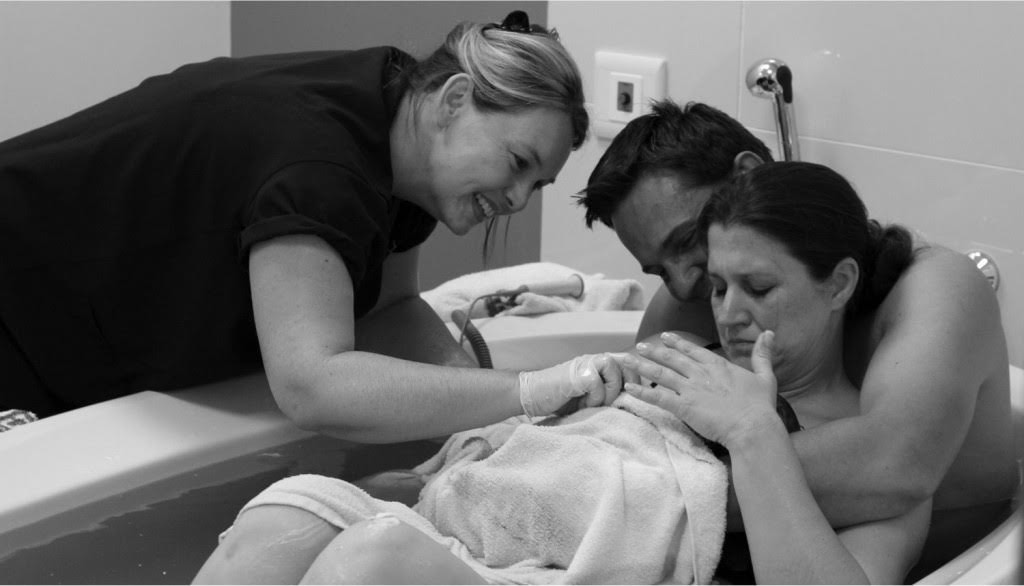
The number of Coronavirus cases and deaths in South Africa has been climbing since February, although the country has been on lockdown since March. Every day, the country has over 6000 new contagions, which have amounted to 400,000 with over 5000 deaths. The region of Gauteng in the north of South Africa has the highest numbers of the country with almost 90,000 cases. The city of Pretoria is the capital of the region, a city of the University of South Africa and a nine-meter tall statue of Nelson Mandela.
Pretoria is where Heather Pieterse lives and works. Heather has been a midwife for 21 years, working as an independent and opening her own practice. She also runs a freestanding birth centre and with her employees, she does hospital births for those and home births for the women who choose them. She has always loved the psychological aspect of midwifery and how women change and cope.
“Seeing the strength of a woman as she goes through labour and birth is inspiring,” said Heather.
Midwives are the support for expecting mothers, they follow them through the nine months and at birth. They do the checkups and screenings and they give advice to cope during labor. They are a crucial emotional aid but they are not respected by everyone.
“We do a great job and mean the world to so many families but to other medical professionals we are still treated as though we are nothing,” said Heather.
Covid-19 added more difficulties to the misunderstood profession. When Coronavirus hit the country, so did the chaos.
In South Africa, the division between private and public hospitals made the reaction to Coronavirus a Rubik’s cube, difficult to piece together. Rules about admissions and birth changed continuously and the hospital’s management tried to plug holes instead of planning a strategy. Midwives don’t have enough staff to assist in the labour ward. Hospitals have gotten busier and the staff has gotten smaller. Midwives with all their expertise weren’t consulted and someone else, someone higher on the food chain, decided for them.
The chaos in hospitals was evident to pregnant women, who wanted to avoid them and preferred home births or Heather’s freestanding birth center. Women wanted to manage the crisis and be cautious. A home birth ensures women don’t have to deal with a hospital’s mess -with ever changing protocols and uncertainties.
Every hospital makes its own rules and sometimes they are scary. In some of them, if a woman isn’t proved negative with Covid-19, she is covered with a clear plastic bag whilst being transported to the labour ward and then, later, from labour ward to the postnatal ward -always wrapped in plastic. An inhumane treatment, Heather said.
Women who have a cesarean section have it even worse, since their partners can’t accompany them and they only see their newborn when the two are discharged. At natural births, partners can be present but they are required to leave one hour after the baby is born. Once again, they will see the new couple only when they are ready to go home.
“Pregnancy and birth has become fear ridden,” said Heather, “women don’t know if they should even get pregnant.”
For those women who are pregnant, the main worry and fear is loneliness. Because of the constant changes in hospital protocols, partners might soon not be allowed in and family members are already left out. Mothers find themselves alone, without any emotional support.
For Heather and many midwives in the world, the main fear is getting Covid-19 from their patients. Who will birth the babies in our practice? That is Heather’s main concern. Since the rules of the game are so uncertain, the midwives of South Africa don’t know how to deal with positive but asymptomatic patients.
The stress piles up, and Heather has no outlet both because holidays have been cancelled and because the country is on lockdown.
“We can’t see friends or extended family so it’s really work, home, work.
We go from one day to the next, some days we are scared and generally we are exhausted,” says Heather, “every day we are worried about our own families whom we may infect.”
The uncertainties and the stress: the profession of a midwife has changed because of Covid-19. Sometimes she feels like she can’t support her patients.
One of her mothers (as she affectionately calls them), was pushing through labor, holding Heather close. They were face to face, close. Too close, Heather realized. Breathing too close to someone else is risky in the era of Coronavirus.
“But this is what we do as midwives. We support, we love, we hold,” said Heather.
Despite Covid-19, the anonymous masks, the goggles and the fear, Heather and every midwife in the world, they make a difference. This is a horrible time for pregnant women, but midwives always do their best for the soon-to-be mothers. Midwifery is an important profession that deserves respect and compassion, not scorn.
Content by Gaia Zol

